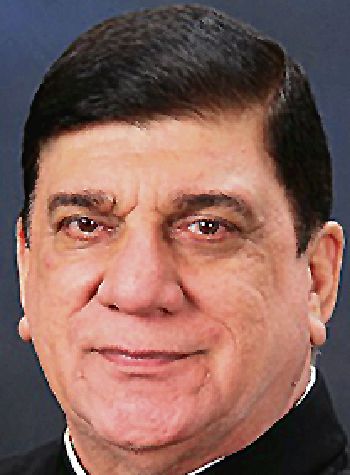Renaming of Port Blair steeped in jingoistic politics
IF there is one place in the country that needs no lessons on patriotism or the constitutional idea of ‘unity in diversity’, it is the Andaman and Nicobar Islands. The majority of its population (around five lakh) is composed of the descendants of freedom fighters incarcerated by the British. Others include subsequent settlers and the members of native tribes like the Negrito Jarawas, Onges, Great Andamanese and Sentinelese (arguably the last protected tribe unconnected with the outside world), or Mongoloid tribes like Shompen and Nicobarese.
This distant outpost underpinning the ‘idea of India’ is today a surreal amalgamation of India’s myriad diversities. The freedom struggle and the infamy of ‘Kala Pani’ (owing to the penal settlement and the Cellular Jail) drew prisoners mostly from Bengal, Punjab, Bihar and Uttar Pradesh; most of them have remained unsung in the national imagination. For their proud descendants, a sense of communal harmony is exemplified by the usage of a quaint ‘Hindustani’ dialect that cuts across religions, regions and ethnicities. Bengalis, Tamilians, Purvanchalis and Punjabis live cheek by jowl, uncorrupted by the toxic polarisation and manufactured political ‘divide’ that consume the Indian mainland. In a perverse manner, the distance (1,200 km from either Chennai or Kolkata) and natural isolation from the vile politics of the mainland have ensured the ideal ‘mini-India’ there.
The dominant ‘us vs them’ narrative is not among religions or ethnicities but in the collective ‘islanders vs mainlanders’ realm, where the mainlanders are viewed as usurpers. On the islands, views on history are far more nuanced than the binary understanding in the mainland. For example, there are mixed feelings about Netaji Subhas Chandra Bose’s three-year alliance with the Japanese, as those years are associated with the kind of brutality that outdid that of the British.
These peaceful islanders have embraced their tumultuous, complicated and wounded history as their factual identity without resorting to revisionism or the rewriting of history. It is believed that when two wings of the Cellular Jail were demolished after Independence, many freedom fighters had objected to attempts at tinkering with a place that signified their pain, as they believed that it also represented an important chapter of history. Their peaceful cohabitation with each other and even with its dark past ensured that it remained among the most inclusive societies in the country.
In 2006, as the administrator and gubernatorial appointee, I was tasked with conducting relief and rehabilitation on the islands that had suffered from the deadly tsunami of December 2004. As we recovered from the socioeconomic ravages caused by the natural disaster, I found immense succour in the way society held together. As a former combatant, I witnessed a sense of social conviviality, timeless patriotism and a larger national purpose that is unique to far-flung border areas of the Leh region, Kashmir highlands or the extreme northeastern regions and remains unseen and underappreciated by the ‘rest of India’.
Admittedly, a lot was achieved, but much remained to be done; the strategic location (overlooking the Chinese ‘choke point’ of the Strait of Malacca) of these islands — as also the instinct to protect vulnerable tribals and the natural green cover — necessitated certain constraints on conventional ‘opening up’ for development on the lines of Goa and Kerala. It needed a lot of government support in the absence of private development — the challenge of infrastructure, civic facilities and employment opportunities persisted. Yet the ‘shining outpost’ of India held fast to its unique ways and history.
But it wasn’t long before the winds of mainland ‘normalcy’ reached the pristine islands. One such phenomenon was the changing of names of popular places to promote nationalism. The Havelock, Neil and Ross islands were renamed Swaraj Dweep, Shaheed Dweep and Netaji Subhas Chandra Bose Dweep, respectively. Given the islands’ huge dependence on tourism and, therefore, on the need to develop touristy ‘brands’, marketing wisdom would advise against tinkering with names. After all, consistency of usage, brevity of nomenclature and building longstanding identity are commonsensical. Yet, names were changed not because the locals wanted so, but because of the hyper-nationalism formula. Many didn’t make much of it initially in the hope that it would result in more transformational support from the government. It is another matter that Netaji’s grandnephew Chandra Kumar Bose, who was the initial force behind this renaming initiative, later quit the ruling dispensation, claiming that he had received no support from the BJP to propagate the legendary freedom fighter’s ideology.
Later, 21 uninhabited islands were renamed after Param Vir Chakra awardees with much fanfare. As the rechristening was a homage to the truly deserving sons of India and had no practical implications, it was accepted. Yet, despite the posturing, the much-sought-after government investments have remained elusive.
The continuing project of nationalist aggrandisement has returned to the Andaman and Nicobar Islands. The capital, Port Blair, was recently renamed Sri Vijaya Puram. The islanders woke up to yet another ironical insistence on patriotism, ostensibly done to “free the nation from colonial imprints”. That Archibald Blair (after whom Port Blair was named) was a relatively inconsequential naval surveyor in the Bombay Marine did not matter, as social media was abuzz with grave insinuations about him.
Calls made to some islanders about the renaming of Port Blair evoked a combination of indifference and exasperation. Such exercises have been undertaken many times before with little focus on what truly matters to the islanders. It is not wrong but just a repeat of jingoistic politics, especially for a people who can teach the rest of the country a thing or two about dignified patriotism (not hyper-nationalism), inclusivity and secularism. The real issue is meaningful development — and it is not being addressed.









